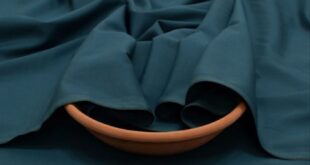Aluminum profiles are a cornerstone of modern architecture and industrial design, and they play an especially critical role in the creation of windows and doors. Known for their durability, lightweight nature, and versatility, aluminum profiles have become the go-to material for both residential and commercial construction projects. Among the leading manufacturers of these high-quality Aluminum Alloy Profiles products is Haixuan-Alu, a company known for its extensive range of aluminum extrusion solutions.
In this article, we will explore the various types of aluminum profiles, including aluminum profiles for windows and doors, aluminum extrusion processes, and the advantages of using these materials. We will also highlight how Haixuan-Alu’s offerings stand out in this competitive market.
Understanding Aluminum Profiles
Aluminum profiles refer to the pre-formed shapes made from aluminum through the process of extrusion. This method involves forcing heated aluminum alloy through a die to create profiles with specific shapes, which can be customized for various applications. Whether it is for windows, doors, furniture, or industrial uses, aluminum profiles offer unparalleled flexibility in design and functionality.
The process of aluminum extrusion allows manufacturers to create profiles in various shapes and sizes, tailored to specific applications. This is particularly beneficial for industries where precision and strength are paramount, such as construction, automotive, and furniture design.
Aluminum Extrusion: The Process and Benefits
Aluminum extrusion involves heating an aluminum alloy billet to a specific temperature and then pushing it through a die to create a profile. This process is not only cost-effective but also allows for the creation of complex shapes that would be impossible with other manufacturing methods.
One of the key benefits of aluminum extrusion is its ability to produce highly consistent and accurate profiles. This ensures that the aluminum profiles used in window and door manufacturing are uniform, with a smooth finish and precise dimensions. Additionally, aluminum extrusion is energy-efficient and produces minimal waste, making it an environmentally friendly manufacturing process.
Aluminum Alloy Profiles: Strength and Lightweight
Aluminum alloys are created by combining aluminum with other metals to enhance its strength, corrosion resistance, and other properties. Different alloys are used for different applications, depending on the strength and durability required. The two most commonly used aluminum alloys in the production of profiles for windows and doors are 6063 and 6061.
- 6063 Aluminum Alloy: Known for its excellent corrosion resistance and smooth surface finish, 6063 aluminum alloy is often used for architectural aluminum profiles, particularly for windows and doors. This alloy offers good workability and can be easily anodized to enhance its durability.
- 6061 Aluminum Alloy: A stronger alloy than 6063, 6061 aluminum is often used in applications that require higher strength. It is more suitable for industrial aluminum profiles and is also known for its excellent resistance to stress and impact.
The combination of these alloys provides a perfect balance of strength and lightweight properties, making aluminum profiles for windows and doors both durable and easy to handle.
Aluminum Profiles for Windows and Doors: Features and Applications
Aluminum profiles for windows and doors have become increasingly popular due to their numerous advantages. When compared to traditional materials such as wood or steel, aluminum offers superior performance in terms of strength, thermal efficiency, and maintenance requirements.
- Strength and Durability: Aluminum profiles are known for their high strength-to-weight ratio, making them durable and resistant to wear and tear. This makes them ideal for windows and doors, as they can withstand the stresses of daily use without deteriorating over time.
- Thermal Insulation: Modern aluminum profiles for windows and doors are designed with thermal breaks, which improve their energy efficiency by reducing heat transfer. This ensures that buildings remain comfortable and energy-efficient throughout the year.
- Low Maintenance: Unlike wooden frames, aluminum profiles do not require regular painting or sealing. Their natural resistance to corrosion, especially when anodized, ensures that they retain their appearance and functionality for years.
- Aesthetic Appeal: Aluminum profiles can be easily customized with a variety of finishes, including anodized aluminum profiles, which offer a sleek, modern look. They can be designed to complement various architectural styles, from contemporary to traditional.
- Security: Aluminum profiles provide strong, secure frames for windows and doors, enhancing the safety of a building. The robustness of the material helps prevent forced entry and ensures that windows and doors function smoothly for years.
Industrial Aluminum Profiles: A Broad Range of Uses
In addition to windows and doors, aluminum profiles are widely used in industrial applications. Industrial aluminum profiles are designed for use in manufacturing and automation processes, where high strength, durability, and customization are essential.
These profiles are used in a variety of industries, including:
- Automation: Aluminum profiles for machine frames, assembly lines, and robotics.
- Transportation: Profiles for vehicles, including trains, buses, and airplanes.
- Manufacturing: Structures for factories and production lines, as well as protective barriers.
The versatility of industrial aluminum profiles makes them a valuable component in many sectors, providing strength and flexibility while reducing the overall weight of machines and structures.
Architectural Aluminum Profiles: Enhancing Modern Designs
Architectural aluminum profiles are used extensively in the construction of modern buildings, providing not only structural integrity but also an aesthetic touch. From curtain walls to window frames and door frames, these profiles are integral to creating sleek, contemporary architectural designs.
The advantages of architectural aluminum profiles include:
- Customization: Aluminum profiles can be tailored to meet specific design requirements, ensuring that they blend seamlessly with the surrounding architecture.
- Longevity: The durability and low maintenance of aluminum profiles make them ideal for use in buildings that need to stand the test of time.
- Sustainability: Aluminum is a highly recyclable material, making it an environmentally friendly option for construction.
Furniture Aluminum Profiles: Stylish and Functional
Aluminum profiles are also gaining popularity in the furniture industry, where they are used to create modern, functional pieces. Furniture aluminum profiles are particularly useful for creating lightweight yet durable frames for tables, chairs, shelving units, and other furniture items.
These profiles can be anodized or powder-coated for added protection and aesthetic appeal. The sleek, minimalist design of aluminum furniture profiles fits perfectly into contemporary interiors, adding both style and functionality.
Anodized Aluminum Profiles: Enhanced Protection and Aesthetics
Anodizing is an electrochemical process that enhances the natural oxide layer on the surface of aluminum, providing improved corrosion resistance and a more aesthetically pleasing finish. Anodized aluminum profiles are especially popular in windows and doors, as well as other architectural applications.
The anodizing process gives aluminum profiles a smooth, durable finish that resists scratching, fading, and discoloration. It also allows for a variety of color options, including classic silver, black, gold, and bronze finishes, making anodized aluminum profiles a highly versatile choice.
Aluminium Extruded for Sunrooms: A Perfect Combination of Function and Design
Sunrooms require high-performance materials that can withstand exposure to the elements while providing an aesthetic appeal. Aluminum profiles, especially aluminum extruded for sunrooms, offer the perfect solution.
Aluminum is resistant to rust, corrosion, and extreme weather conditions, making it ideal for outdoor structures like sunrooms. Its ability to be customized and anodized ensures that sunrooms can be both functional and beautiful, with strong, secure frames that enhance the overall design.
Haixuan-Alu: Leading the Way in Aluminum Profiles
Haixuan-Alu is a leading manufacturer and supplier of high-quality aluminum profiles, offering a wide range of products for various applications, including windows and doors, industrial uses, and architectural designs. The company specializes in aluminum extrusion, providing custom solutions to meet the unique needs of their clients.
Haixuan-Alu’s commitment to quality is evident in their selection of aluminum alloy profiles, which are designed for maximum strength, durability, and aesthetic appeal. Whether you need aluminum profiles for windows, doors, sunrooms, or industrial applications, Haixuan-Alu provides the perfect solution to meet your specifications.
Conclusion
Aluminum profiles for windows and doors are an essential element in modern construction, providing strength, durability, and aesthetic appeal. With their lightweight nature and ability to be customized, aluminum profiles are used in a variety of applications, from residential buildings to industrial and architectural designs.
Haixuan-Alu’s extensive range of aluminum profiles, including anodized aluminum profiles, aluminum extrusion solutions, and customized alloy profiles, ensures that clients receive the highest quality products tailored to their needs. Whether you are looking to enhance the design of your windows, doors, or sunrooms, Haixuan-Alu offers the ideal aluminum profiles to meet your expectations
 Crypto trade Online Unlock the Future of Finance Today.
Crypto trade Online Unlock the Future of Finance Today.



